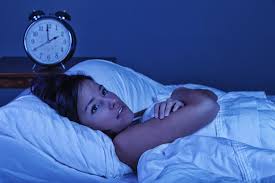In today’s fast-paced, technology-driven world, sleeplessness has become an increasingly prevalent issue, earning it the apt moniker of “the modern plague.” The constant bombardment of stimuli, coupled with high levels of stress and pressure, leaves many individuals feeling perpetually wired yet utterly exhausted. This article aims to explore the intricate relationship between modern lifestyles and insomnia, shedding light on the factors contributing to this epidemic and offering insights into potential solutions.
The Digital Dilemma
One of the primary culprits behind the rise of insomnia in contemporary society is the pervasive presence of digital devices. From smartphones and tablets to laptops and televisions, screens have become an integral part of daily life. However, the blue light emitted by these devices disrupts the body’s natural sleep-wake cycle, suppressing the production of melatonin, the hormone responsible for regulating sleep.
Moreover, the constant connectivity facilitated by digital technology has blurred the boundaries between work and leisure, making it increasingly difficult for individuals to unwind and relax before bedtime. The temptation to check emails, scroll through social media feeds, or binge-watch streaming services can keep minds alert and engaged, hindering the transition into restful sleep.
The Stress Epidemic
Another significant contributing factor to the modern plague of insomnia is the pervasive presence of stress in contemporary society. The relentless demands of work, coupled with personal responsibilities and societal pressures, create a perfect storm of anxiety and tension, making it challenging for individuals to calm their minds and achieve a state of relaxation conducive to sleep.
Furthermore, the 24/7 nature of modern life means that many individuals are constantly “on,” with little opportunity for true downtime or relaxation. This chronic state of hyperarousal can disrupt the body’s natural sleep rhythms, leading to persistent sleep difficulties and exacerbating existing insomnia.
The Sedentary Lifestyle
The sedentary lifestyle that characterizes much of modern living also contributes to the prevalence of insomnia. Physical inactivity, often compounded by long hours spent sitting at desks or in front of screens, can disrupt the body’s circadian rhythm and impair sleep quality.
Regular exercise is known to promote better sleep by reducing stress levels, promoting relaxation, and regulating the body’s internal clock. However, many individuals struggle to find the time or motivation to incorporate physical activity into their daily routines, further exacerbating their sleep problems.
The Chemical Cocktail
In addition to lifestyle factors, the modern diet plays a significant role in contributing to insomnia. The consumption of caffeine, nicotine, and alcohol, all of which are pervasive in contemporary society, can disrupt sleep patterns and impair sleep quality.
Caffeine, a central nervous system stimulant found in coffee, tea, energy drinks, and chocolate, can interfere with the body’s ability to fall asleep and stay asleep, especially when consumed in large quantities or later in the day. Similarly, nicotine, found in tobacco products, can disrupt sleep by causing arousal and withdrawal symptoms during the night.
Alcohol, often used as a relaxant to unwind after a long day, can have paradoxical effects on sleep. While it may initially promote drowsiness and help individuals fall asleep faster, it can disrupt the later stages of sleep, leading to fragmented and unrestful sleep.
The Psychological Toll
Beyond the physiological effects, insomnia exacts a significant psychological toll on those affected by it. The chronic sleep deprivation and daytime fatigue associated with insomnia can impair cognitive function, mood regulation, and overall quality of life.
Individuals struggling with insomnia may experience heightened levels of irritability, anxiety, and depression, further exacerbating their sleep difficulties in a vicious cycle of negative affect and poor sleep. Moreover, the pervasive stigma surrounding sleep disorders can compound feelings of shame and isolation, preventing individuals from seeking the help and support they need.
Breaking the Cycle
Breaking free from the grip of insomnia requires a multifaceted approach that addresses the underlying causes and triggers while promoting healthy sleep habits and lifestyle practices. Here are some strategies to consider:
Digital Detox
Limit screen time in the hours leading up to bedtime and create a technology-free zone in the bedroom to promote relaxation and signal to the brain that it’s time to wind down.
Stress Management
Incorporate stress-reduction techniques such as mindfulness meditation, deep breathing exercises, or progressive muscle relaxation into your daily routine to promote relaxation and alleviate tension.
Physical Activity
Engage in regular exercise, preferably earlier in the day, to promote better sleep and overall health. Aim for at least 30 minutes of moderate-intensity activity most days of the week.
Healthy Sleep Hygiene
Establish a consistent sleep schedule, create a relaxing bedtime routine, and optimize your sleep environment to promote restful sleep. Avoid caffeine, nicotine, and alcohol close to bedtime, and limit daytime napping to avoid disrupting nighttime sleep.
Seeking Support
If insomnia persists despite your best efforts, don’t hesitate to seek professional help. A healthcare provider can help identify underlying medical or psychological factors contributing to your sleep difficulties and recommend appropriate treatment options, which may include cognitive-behavioral therapy for insomnia (CBT-I) or medication.
Conclusion
In conclusion, the modern plague of insomnia is a complex and multifaceted issue that requires a holistic approach to address effectively. By understanding the interconnectedness of lifestyle factors, stressors, and psychological variables contributing to sleep disturbances, individuals can take proactive steps to reclaim their sleep and restore balance to their lives. Through a combination of healthy sleep habits, stress management techniques, and targeted interventions, it is possible to break free from the cycle of wired and tired and enjoy restful, rejuvenating sleep once more.




